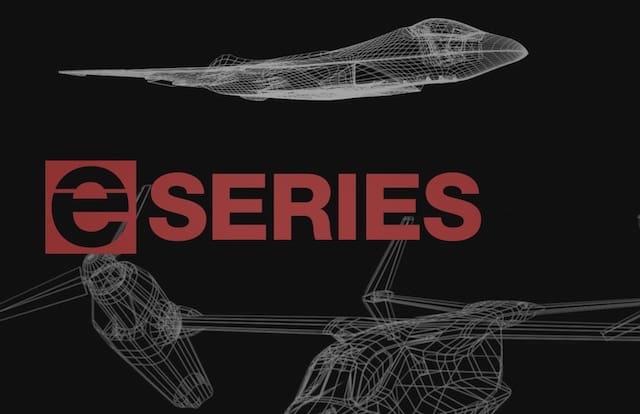ARLINGTON, Va. (AFNS) —
Secretary of the Air Force Barbara Barrett told Air Force Association conference attendees that the future of Air and Space technology will include aircraft, weapons and satellites which will be digitally engineered and virtually tested before ever taking physical form.

A true paradigm shift, systems being considered for acquisition will be designed, developed and manufactured on a digital foundation, just like the Boeing eT-7A Red Hawk advanced trainer. The new process is part of the Department’s digital eSeries approach.
The secretary made her remarks during the keynote speech at this year’s Air Force Association Air, Space and Cyber Conference, which is being held virtually due to the global pandemic.
“To inspire companies to embrace the possibilities presented by digital engineering, today the Department of the Air Force is announcing a new weapons system designator—the ‘e’ series,” Barrett said. “Aircraft, satellites, weapon systems and more that are digitally engineered will receive an ‘e’ prefix.”
The first U.S. Air Force aircraft designed using the digital approach, the eT-7A Red Hawk, embraced model-based engineering and 3D design tools which reduced assembly hours by 80% and cut software development time in half. The aircraft moved from computer screen to first flight in just 36 months.
Other Air and Space Force programs have leveraged the power of digital engineering to reduce design and testing time. In the future, more Air and Space Force acquisition programs will be using digital engineering principles to design, code and build systems.
According to Air Force officials, an eSeries digital acquisition program will be a fully-connected, end-to-end virtual environment that will produce an almost perfect replica of what the physical weapon system will be. It will bring unprecedented speed and agility to help compete in the technology battlespace by enabling thousands, even millions, of virtual iterations at machine speeds to design the best possible system — but only build the single, best design.
By Secretary of the Air Force Public Affairs


36 months, with computer “e” design? Huh.
In 1940, the prototype P-51 first flew 6 months after the first sketch on the back of an envelope, and only 102 days after the contract was signed. Just sayin’…
In a world where good enough is the enemy of perfect, this is next level thinking.
In the interest of fairness, modern aircraft have gotten several orders of magnitude more complex since the age of turboprop propulsion, wire-and-pulley control surfaces, and cannons as primary armament.